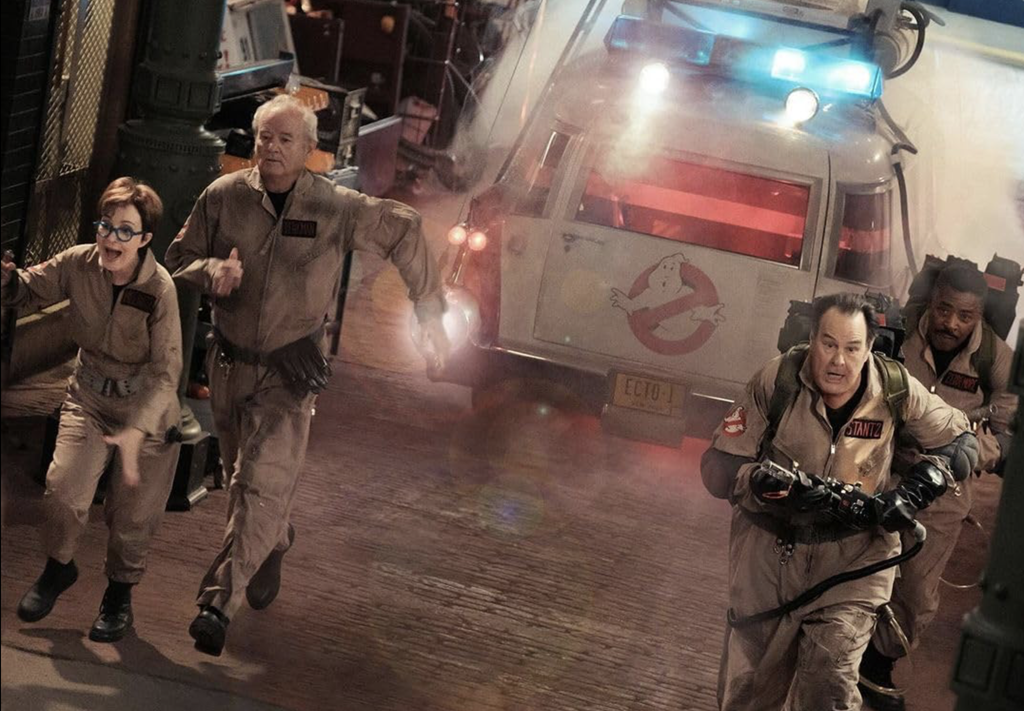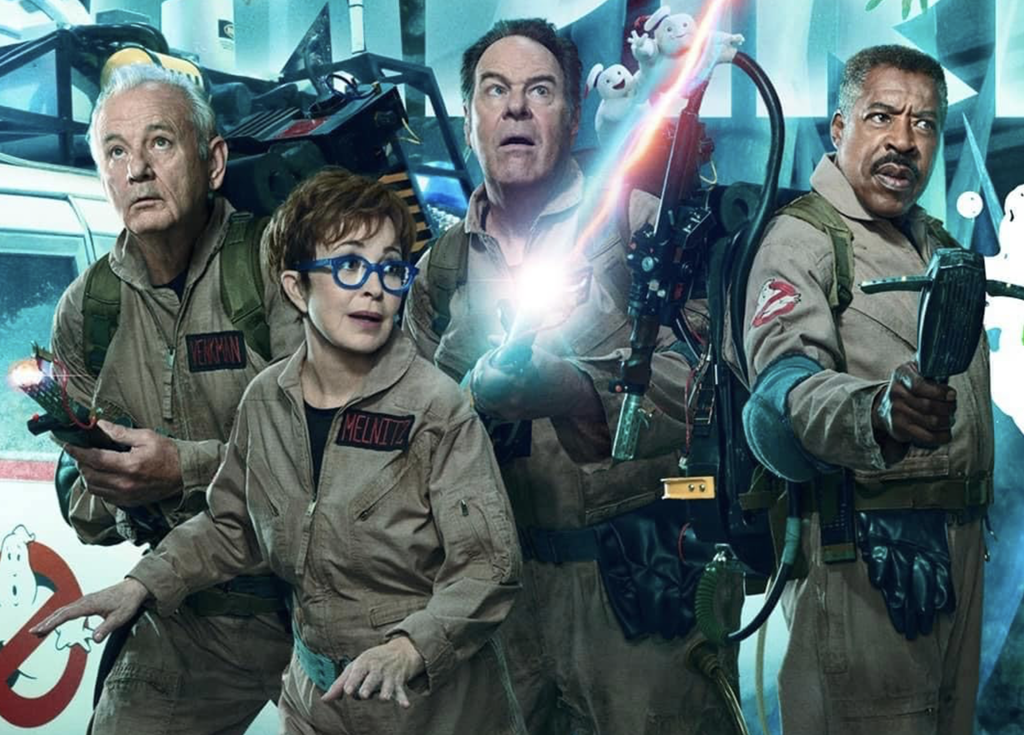If you asked me at age 12 if I’d like to see a third Ghostbusters film, I would’ve fainted from excitement. But when my dream finally came true in 2021 with Ghostbusters: Afterlife, the prospect of a new instalment in the series didn’t feel quite as exciting anymore. After being disappointed time and time again by modern sequels and reboots to my childhood favourites (looking at you Star Wars sequel trilogy), Afterlife felt like just another nostalgia-heavy snooze fest with no identity of its own. I hoped that the next film in the series, Ghostbusters: Frozen Empire, might be able to forge its own path, creating something unique and special. I was wrong.
Although not as egregiously uncreative as Disney’s live-action remakes, or as in-your-face with its references as The Flash — Frozen Empire is yet another example of Hollywood’s obsession with resurrecting long-dead movie franchises. Now I know modern blockbusters aren’t exactly high-brow cinema, but this film can’t even be enjoyed in a “turn your brain off” kind of way. It’s extremely complicated, with a main cast composed of the four new Ghostbusters from Afterlife, the three surviving busters from the original films, and a handful of other new characters. This makes the film bloated, wedging in random sub-plots to justify each character’s presence. Unfortunately, the newer entrants aren’t remotely as funny, likeable, or relatable as Bill Murray, Dan Aykroyd, and Ernie Hudson, who are hardly present themselves. This is symptomatic of the modern nostalgia blockbuster formula, as the overstuffed cast leaves little room for character development. The original Ghostbusters worked because it was a tight cast, providing much needed opportunities to flesh their characters out.

Ghostbusters was also never an action movie, at least not in a typical sense. It was first and foremost a comedy; the horror and action elements were icing on a hilarious cake. Sadly, the point of the first film has either been forgotten or brushed aside to make a more widely-appealing, Marvel-esque blockbuster. Frozen Empire drops the comedic angle almost entirely.. The jokes here are akin to quips from Tony Stark rather than the clever, dry wit of Peter Venkman or the earnest yet awkward remarks from Ray Stantz. I’m not saying the filmmakers can’t experiment with different genres and tones — Afterlife was light on comedy, but it felt more excusable there, as it felt far removed from the other films in the series. Here, we’re back in New York with the original gang, yet the sharp and witty writing has disappeared.
Elements of the original film that have become far more important in Frozen Empire are the gadgets and lore. There’s quite a few scenes in this film that come to a grinding halt to explain the technology behind ghostbusting equipment, or to tell us the villain’s backstory. Frozen Empire seems more interested in made-up science than story, using iconic imagery to convey emotion rather than creating interesting characters. Again, these are symptoms of modern Hollywood’s worst tendencies, using nostalgia as a way to garner attention rather than creating something meaningful. Audiences don’t care about made-up ghost science; they want interesting characters and humour, because that’s what Ghostbusters is, or was, all about.

There were some positives to the experience, such as the use of practical costumes and puppets to portray the iconic Library Ghost and everyone’s favourite disgusting blob Slimer, which in an age of CGI dominance was refreshing. However, a couple of pros weren’t enough to save the film for me, which was sad, but expected. Legacy sequels, reboots, and remakes rule Hollywood at the moment, but if the reception of this film and others like it is any indicator, I believe we might be entering a new age of cinema. People are tired of seeing old ideas reproduced with no vision of their own, or tired sequels bringing back actors in their 70s to play the same role they did in 1984. Ghostbusters: Frozen Empire, while better than most of its contemporaries, feels like it’s coming at the end of an era. Audiences just want more — more character, more detail, more substance. We’re tired of the same old dull routine. As sad as it is that we might have to say goodbye to old friends, maybe something new isn’t such a bad thing after all.


